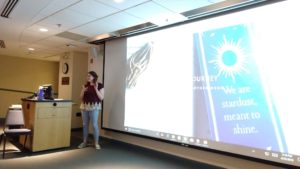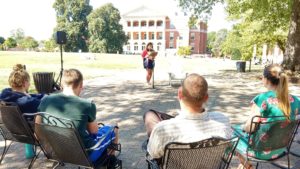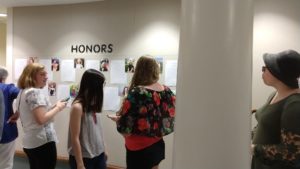The Department of English and Linguistics is comprised of several different disciplines. What these disciplines share is an absorption with language, whether written or spoken, on Tumblr or in No. 2 pencil, in practice or in theory: its underlying structures, its genres, its beauty, its cognitive production, its history, its effectiveness, its role in our democracy, public discourse, and subcultures, its relationship to new technologies, and more. While the department has no specific ideology, it is devoted to rigorous thought, mastery of detail, and intellectual honesty.
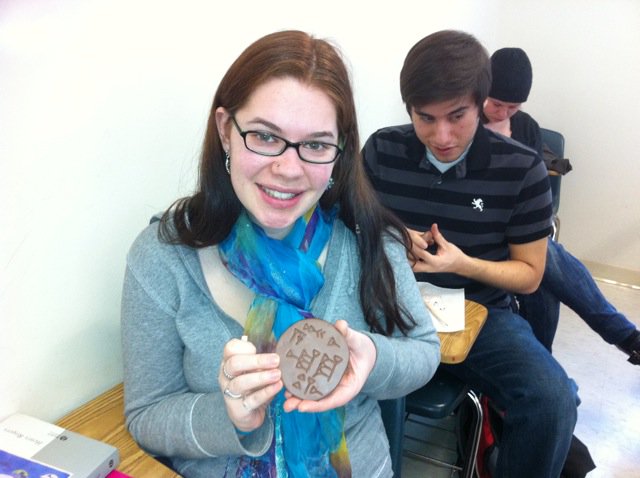
Students in ENLI classes learn about the history of writing systems, among other topics related to language.
ENLI Majors and Minors
Students in ENLI may major in English, with the options of concentrating in literature or creative writing, or they may complete special majors in Linguistics.
Linguistics, Literature, and Professional Writing also offer minor courses of study.
ENLI Activities and Research
A number of activities, such as readings and lectures by visiting writers and scholars, and social events bring professors and students together informally. The department participates in a variety of topical campus events, including Banned Books Week and the National Day on Writing.
The department also sponsors the Kemp Symposium each spring, an academic showcase at which our students’ excellent research, projects, and writing are presented to the community in a series of panels.
ENLI Student Honors and Recognition
The department hosts a chapter of Sigma Tau Delta, a national literature honor society, to which qualified students are invited to apply.
Students may also apply for departmental honors. Their work is recognized at a year-end ceremony and throughout the year on the ENLI common area on the third floor of Combs Hall.
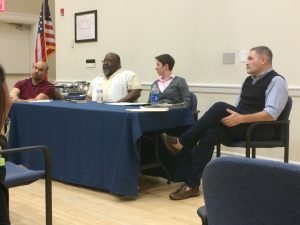
Professors Pineda, Tweedy, Haffey, and Richards on the panel “Reading Giovanni’s Room: A Celebration of James Baldwin and his Novel”
ENLI Department Culture
The Department of English and Linguistics is committed to:
- supporting the UMW Statement of Institutional Values on Diversity and Inclusion;
- establishing a culture and membership in the department that reflect more closely the diversity of the world;
- fostering an inclusive, nondiscriminatory and accepting climate that is conducive to the well-being and retention of a population of students and faculty regardless of age, national origin, disability, religious or secular background, economic background, race, ethnicity, sexual orientation, and gender;
- pursuing the active recruitment of underrepresented faculty and students, including women, minorities, individuals with disabilities, and veterans
- maintaining a departmental committee to advocate the implementation of these goals.
